|
I set my first business up when I was eight years old. My Grandma is a keen gardener and I used to help her out on the weekends. She set aside a little vegetable patch for me and I sold what I grew. It was great fun watching my hard work turn into extra pocket money and I would ask for seeds and gardening tools for birthdays, which proved to be a fantastic return on investment. Somewhere along the line I forgot about entrepreneurship. When looking at my future I knew I wanted to be successful, but I wasn’t sure what I wanted to be successful at and I felt pressured into making a decision. At school it was drilled into us that success is top exam marks. Good grades meant a good career, which meant financial success and stability. Success, then, was measured by how much money you made and I fell for it hook, line and sinker. I wanted the big house, the nice car and the high-flying career that would pay for it all. So I chose law. Not because I was particularly passionate about it, but because I thought it was a relatively well-respected and well paid profession. I also quite liked the idea of dressing up in a wig and a cape to go to work. Where my story differs from countless others is my disability. At sixteen I was diagnosed with a condition called Complex Regional Pain Syndrome. This is a neurological condition that causes chronic pain in both my feet and had started when I was only eleven years old. It progressively got worse, forcing a wildly outdoorsy girl who loved playing sport to be confined indoors. To start with, the doctors didn’t know what was wrong with me. Some were testing me for brain and spinal tumours, whilst others accused me of making it up. I didn’t understand why this was happening to me. I didn’t know anybody else with a disability so there was nobody I could relate to. It was hard.
I was down to either archery or swimming, and playing with bows and arrows sounded way cooler. And I loved it. I was back outdoors, doing something I enjoyed. Archery became my passion. It kept me going, giving me something to look forward to even on my most painful days. I went to the University of Leicester to study law, where I worked hard and trained hard. University was a fantastic experience and I learned a lot about myself. I enjoyed my course from an academic point of view, but deep down I knew that practicing law wasn’t where my passions lay. I ignored those thoughts when they surfaced. I had invested too much time into this - I would learn to like it. It was a well respected and well paid profession, after all. That would be enough, right? During my time at University, archery turned into more than a hobby. I made it onto the Great Britain Paralympic team. I won two World Championship titles and returned home from the 2008 Beijing Paralympics with a gold medal. The same week I graduated with a first class degree in law, it was announced that I had made the team for the 2010 Commonwealth Games. I became the first disabled athlete to represent England in an able-bodied discipline, coming away with a gold medal with my team. Now I had a choice to make. Did I go for that very stable career choice of law, or did I go for sport – a very unpredictable, often lonely and sometimes cruel lifestyle? I chose sport. I was passionate about it and I was good at it. I loved travelling the world, meeting new people, experiencing new cultures. I moved to the national training centre to train full time for London 2012, the event that would surpass all other events. I wanted to retain my Paralympic title and do it on home soil. And I did, leaving it right to the very last arrow. Talk about tense! After London, the International Paralympic Committee decided to change the rules of the classification process. In what can only be described as humiliating and harrowing circumstances, I failed and my disability was deemed not severe enough to allow me to compete at the Paralympics. That was it. My sporting career was over. This was devastating. Everything I had worked for was gone, and I was left to pick up the pieces and figure out a new career path for myself. I didn’t know the first thing about business, but I had an idea. As an athlete I knew what it took to win, to consistently be at the top of my game. I'd spent a lot of time researching success - and implementing this knowledge. Life revolved around thinking up changes, taking action and monitoring improvement. It was about moving forwards and always, always striving for higher standards. I wanted to pass this methodology and mentality on to others - to teach people how to unlock potential, break through barriers and achieve more. I set the plan into motion. I learned a lot. I made mistakes. I said yes to opportunities, even if it meant getting up at stupid o’clock in the morning and driving half way across the country for a meeting. I learned how to network and develop my contact base. I slowly climbed back to my feet and began to achieve in a completely new field.
I love what I do. Each day is different, each day is a challenge and I've found playing a small part in other people’s journey to success is far more rewarding than winning gold medals.
2 Comments
|
Details
Categories
All
|
|
Contact Danielle at [email protected]
|
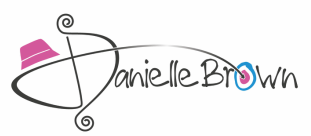
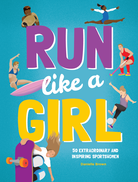
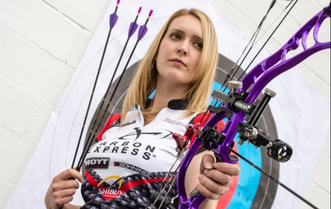
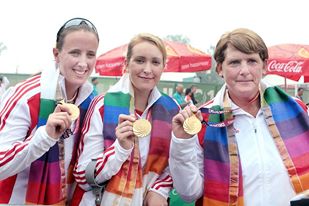
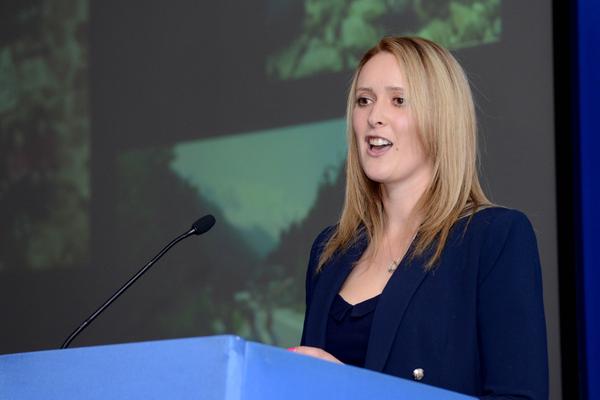
 RSS Feed
RSS Feed